One in seven people in Washington state lacks access to food sufficient for a healthy and active lifestyle. In Pierce County, about 1.3 million visits are made to food pantries and meal sites every year. More than half of these visits to emergency food programs are on behalf of children and seniors.
The Pacific Northwest is known for its often rainy and wet weather, but did you know many of us are living in food deserts? A food desert is an area that has limited access to affordable and nutritious food, and typically has low-income residents. Food deserts lack grocery stores, farmers markets, and healthy food providers.
Without reliable transportation, heading to the store for your next meal is not easy. Maybe you can afford a car or money for the bus, but how far away is the store? Sometimes the price of getting to a meal is more expensive than the meal itself. Unfortunately, these are the realities that many families in Pierce County face each day.
According to a Tacoma-Pierce County Health Department report, much like cities across the United States, the food landscape of Tacoma has dramatically changed over the past fifty years. People in neighborhoods that previously had multiple grocery stores, bakeries, taverns, drug stores, and meat markets owned by long-time community residents are now dependent on one grocery store or a commute to the nearest supermarket miles away.
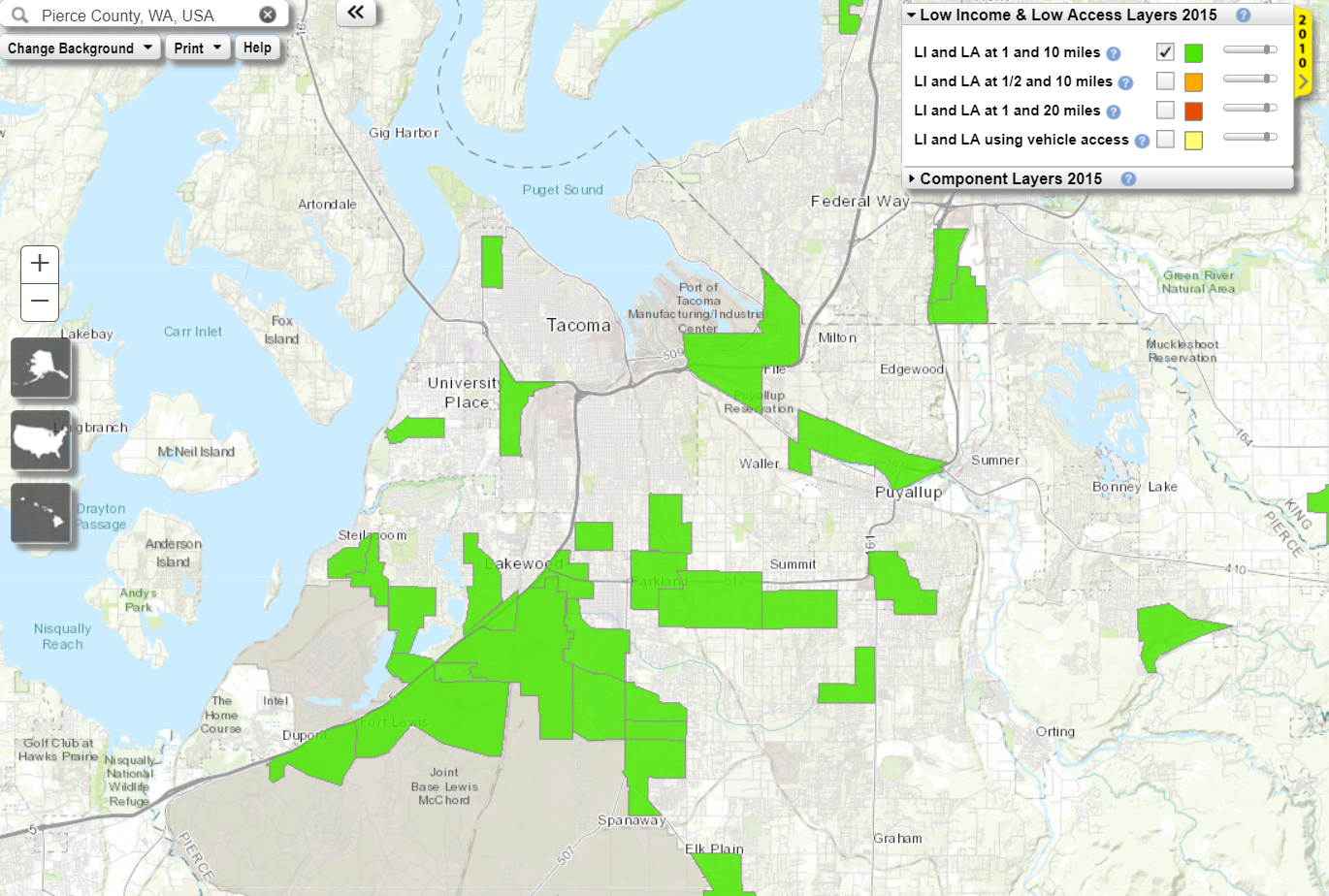
Low-income communities often have the highest density of fast-food restaurants, the fewest high-quality grocery stores, the fewest safe physical activity opportunities, and the highest density of alcohol and tobacco merchants and advertising. Healthy eating and active living are the foundations to prevent obesity, but not everyone has the same opportunities for exercise and healthy food.
With the holidays approaching, Pierce County Human Services wanted to give back to the community with a food drive. The first week, staff collected over 248 cans of food. Enough to feed a family of 4 for 2 weeks. The second week we collected pet food, totaling 93 cans and 6 bags. Enough to feed 2 dogs and 10 cats for 3 weeks. During the third week, we collected 4 boxes of Kleenex and 124 rolls of paper towels and toilet paper. Enough paper products to last a family of 4 for two months. During the final month of October, we collected 77 items that included soup, pasta, cereal, baby food, peanut butter, and baking ingredients. In total, our team collected 459 pounds of food and necessities for families in the County.
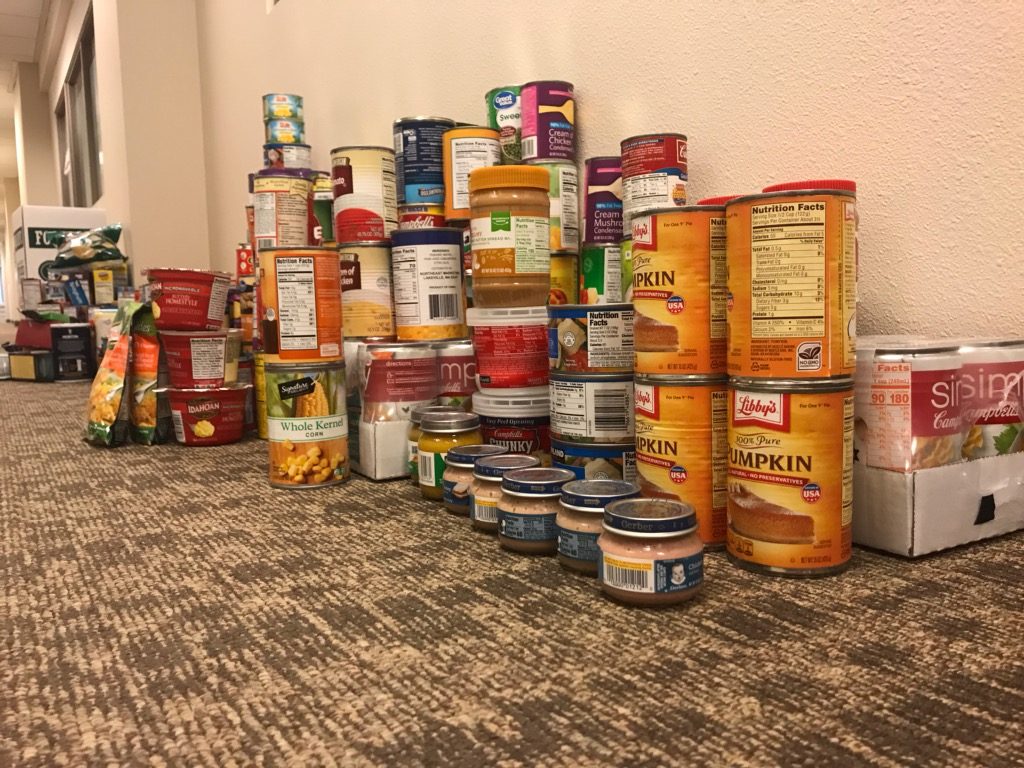
I am very proud of the Human Services team for their compassion and kindness, but it started me thinking, what else can we be doing to make healthy food more accessible for our community? Who else is working to feed Pierce County? During our quest to donate as many items as possible, we came across WSU Pierce County Extension, a contractor with The Department of Social and Health Services (DSHS) SNAP Program.
The Supplement Nutritional Assistance Program Education, or SNAP-Ed for short, provides community-based nutrition education for adults and families in fun and impactful ways. One of the workshops WSU Extension provides is called Eating Smart, Being Active, and it’s a 9-week series where participants prepare healthy meals, learn about nutrition, and how to shop smart.
Another workshop is, Plan, Shop, Save, Cook. During four lessons, families learn how to save time and money, while discovering ways to plan nutritious meals, and tips for stretching food dollars throughout the month! Participants receive incentives and other goodies such as a grocery bag, kitchen utensils, a magnetic shopping list, or a cookbook. Both workshops are designed for residents who are SNAP eligible, but do not necessarily have to be receiving food assistance benefits.
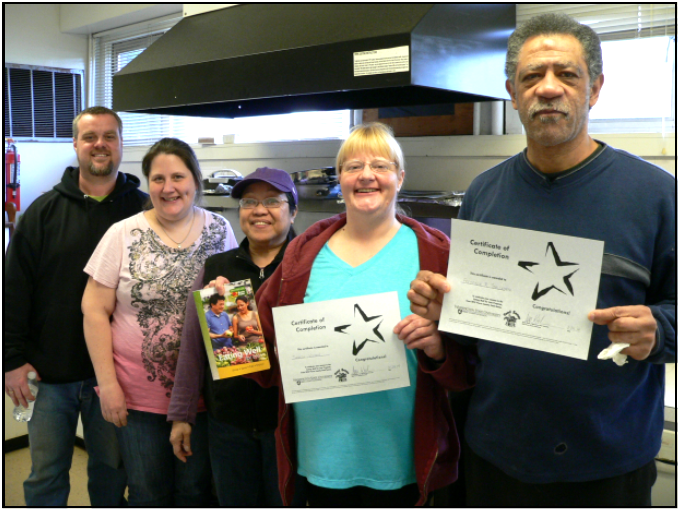
SNAP-Ed targets anyone living below the federal poverty level, and offers programs for youth, families and adults. Youth programs encourage students and their families to eat more fruits and vegetables, whole grain foods and low-fat dairy and to balance food consumption with physical activity to maintain a healthy weight.
Adult series and single events are offered at a variety of community-based locations such as Food Banks and distribution sites, affordable or transitional housing sites, and at the WSU Extension Office in the Pierce County Human Services Soundview Building. They emphasize portion size and the importance of physical activity. The best part about these workshops? Classes are at no cost to participants!
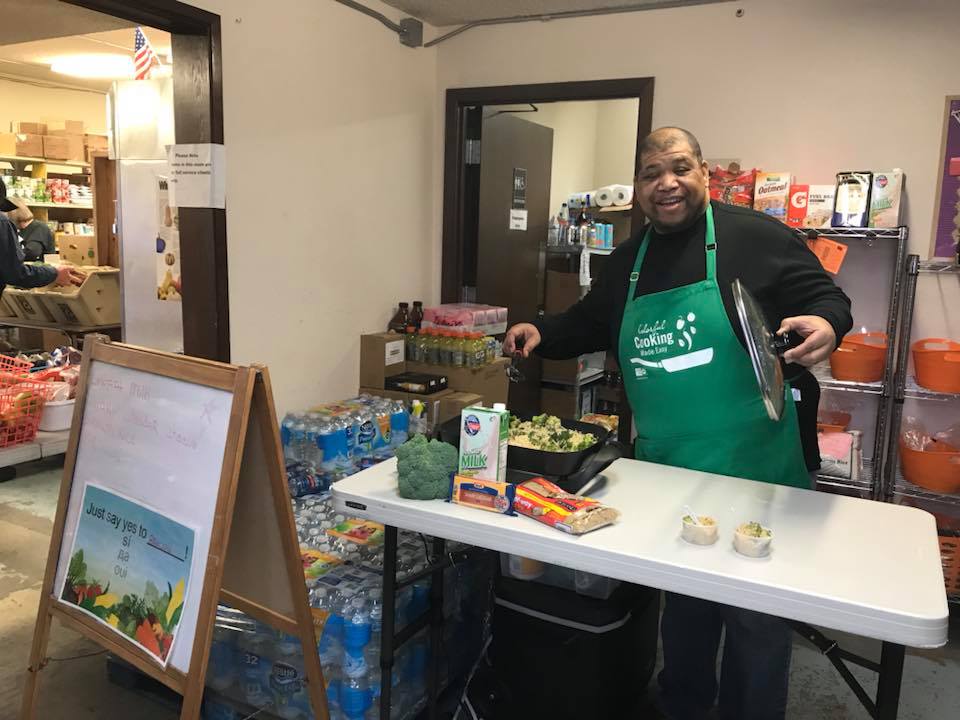
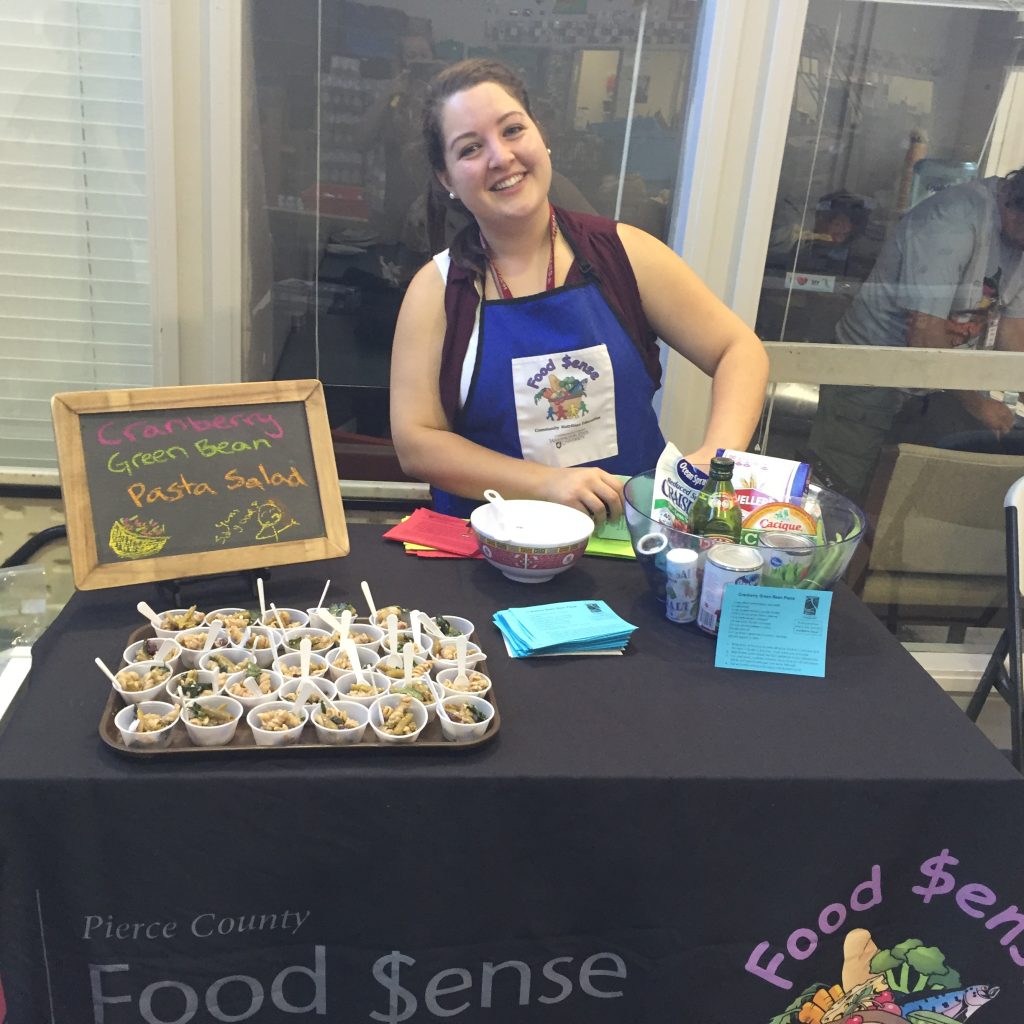
SNAP-Ed often sends representatives to food banks for cooking demonstrations. They take common items found at food banks and create delicious meals that are easy to make and affordable. This not only helps shoppers broaden their culinary horizons and step outside their comfort zone by trying new foods, but it also helps foster a sense of community and belonging between shoppers and volunteers. Another way that SNAP-Ed helps reach people who need food assistance is by creating items in different languages, so more people can access food and communicate needs to volunteers.
SNAP-Ed is just one of the amazing programs that help reduce hunger and food insecurity in Pierce County. We know that chronic hunger and malnutrition prevents children from reaching their full potential, affecting their health, ability to learn in school, and future economic prosperity. A lack of nutritious food also makes seniors more susceptible to health issues. Pierce County Aging and Disability Resources is proud to offer nutrition and food resources for seniors, especially farmers market vouchers to low-income seniors each spring. (We gave out 2,130 in 2018!)
Visit SNAP-Ed online for recipes, activities for children, money-saving ideas, and time-saving tips. If you are living below the federal poverty line and want to see if you qualify for SNAP-Ed benefits, or are a business that would like to host a SNAP-Ed demonstration, contact the WSU Extension Pierce County SNAP-Ed Program Manager Linda Mathews, at 253-798-7154.
Want to learn more about food access in the United States? Check out the USDA Economic Research Service Atlas.

